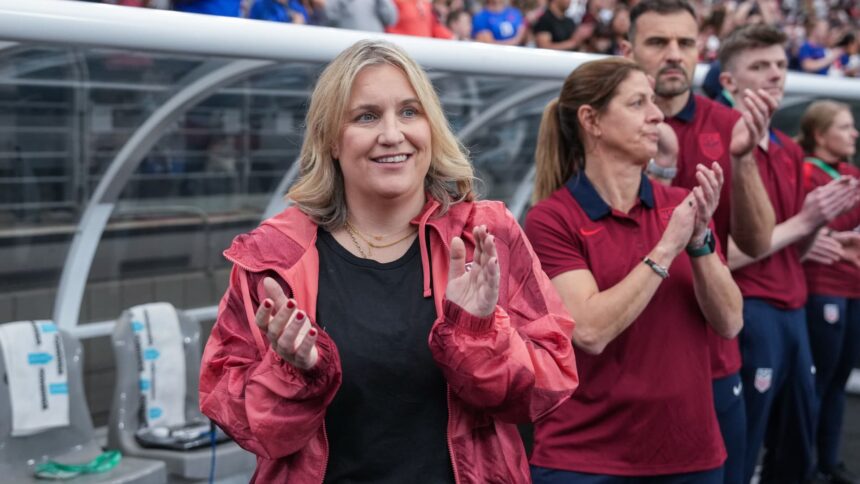Emma Hayes is on a mission to reinvigorate women’s professional soccer in the United States.
Hayes was hired as head coach of the U.S. women’s national team in June after a disappointing few years for the squad as it dealt with an aging lineup, coaching instability, and increased global competition.
Less than a year in, she has led the U.S. team to an Olympic gold medal and won the 2024 Ballon d’Or as women’s soccer coach of the year — putting the world on high alert that women’s soccer in the United States is back.
Nearly eight months after the U.S. defeated Brazil in the Summer Olympics gold-medal game in Paris, the teams will go head-to-head with the two upcoming friendlies in California on April 5 and April 8.
Ahead of the team’s upcoming friendlies, CNBC Sport spoke to Hayes about how the job is going, the biggest surprises that came with it, her leadership style and the steps she is taking to make U.S. women’s soccer a powerhouse again.
Olympic-sized ambitions
Less than three months on the new job, Hayes found herself leading Team USA at the Paris Olympics, following a 12-year stint as head coach of Chelsea women, where she had established herself as one of the top coaches in women’s soccer.
It may have been a daunting challenge for many, but Hayes said she took it one day at a time.
“We all know the pressures and the expectations that are there in and around the team, but I wanted to create an environment where the players felt relaxed and calm but extremely focused,” Hayes told
The England native said she wanted to make sure players did not have to worry about outside pressures.
“I think that by creating that safe bubble, I allowed the players to immerse themselves fully and therefore express themselves in the best way they can on the pitch,” Hayes said.
The U.S. women’s team returned to the podium for its fifth Olympic gold medal after defeating Brazil. The squad had last won gold in 2012.
“The surprise for me was considering all of the pressure, how much joy I would find in it,” Hayes said of the win.
Hayes focused on rebuilding the program to sustain that success. She has turned her attention to areas like creating a stronger soccer pipeline for the future and designing training specifically for women athletes.
“Everything we have been exposed to in our sport has been through the male lens, so we aim to address that and put the sport of soccer in a situation, hopefully for so many players that can experience in the game in a much different way, and ideally through a female lens,” Hayes said.
Hayes said that mindset will apply to everything from recovery methods to strength and conditioning and even tactical information.
The 48-year old coach admitted the changes will take a lot of work and require coach education and even new programs.
“It’s a huge project but one that we’re very much excited to take part in,” she said.
Hayes also aims to use data, analytics and artificial intelligence in more productive ways.
For example, Hayes said that women traditionally have less power in their shots than men, but the data shows they actually score more goals from distance than in the men’s game.
She added that data from a smart ring like Oura, which tracks body temperature, could aid training and recovery.
“I feel like without those data insights, perhaps we won’t make the advances in our game that we would like to,” she said.




